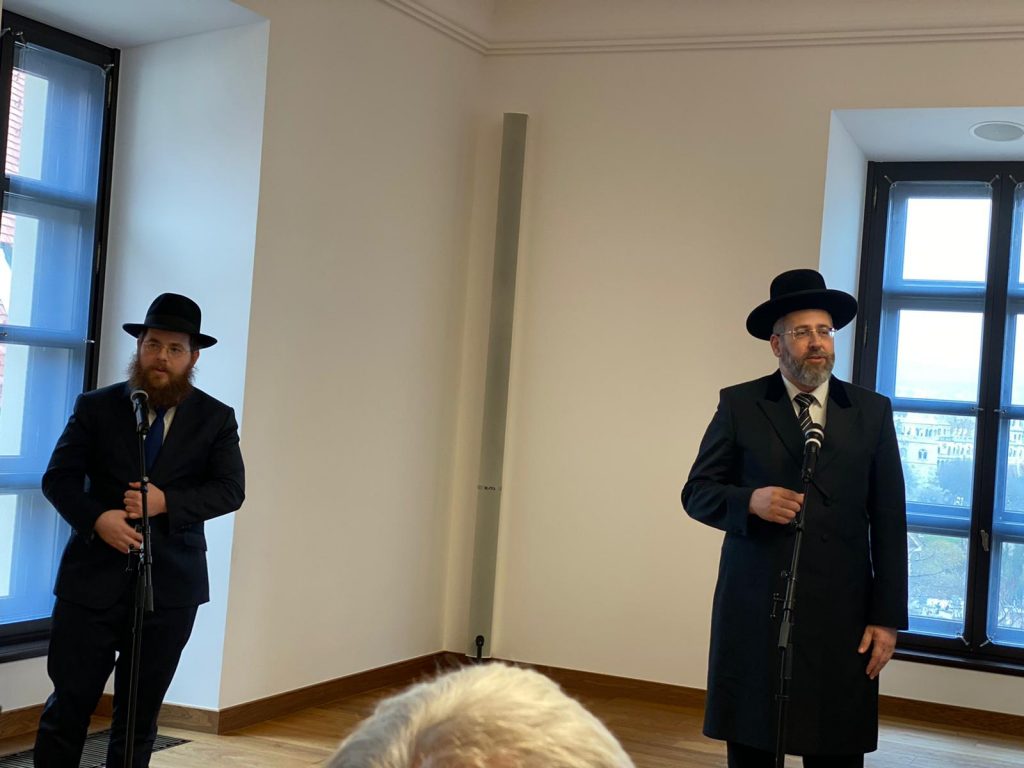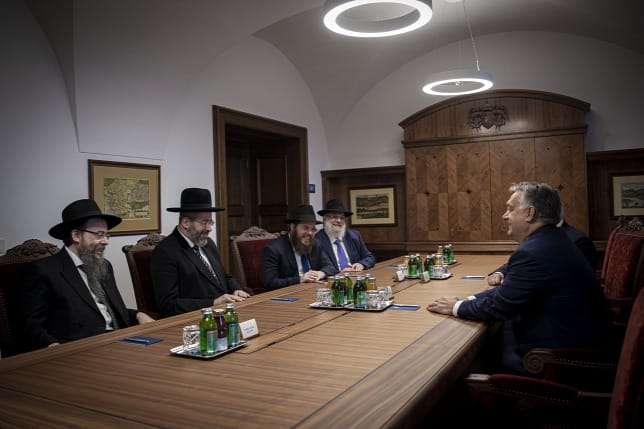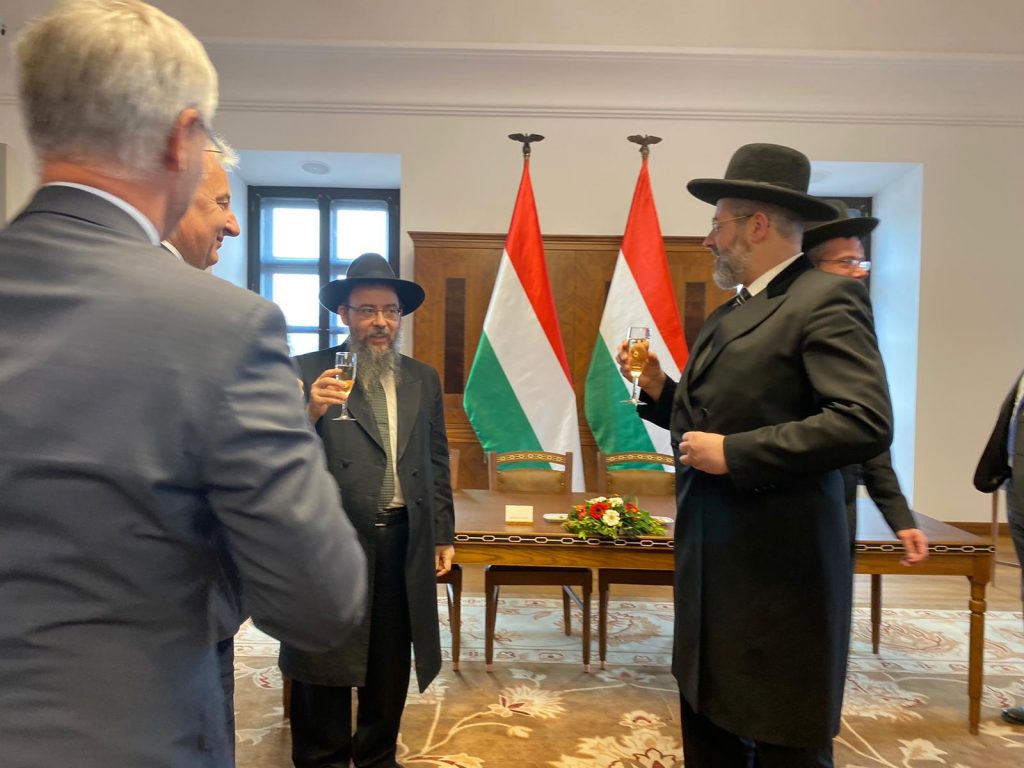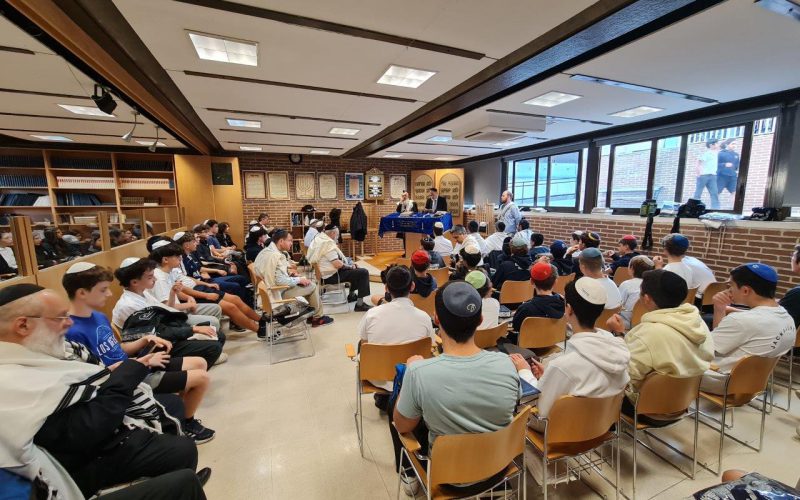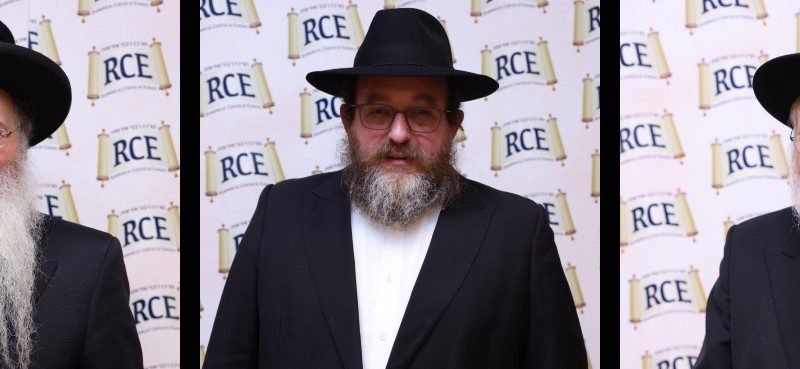Orthodox Jewish community recognized by Hungarian Government
The Hungarian government granted formal recognition to the Orthodox Jewish community. This is the first time that they will benefit recognition since World War II.
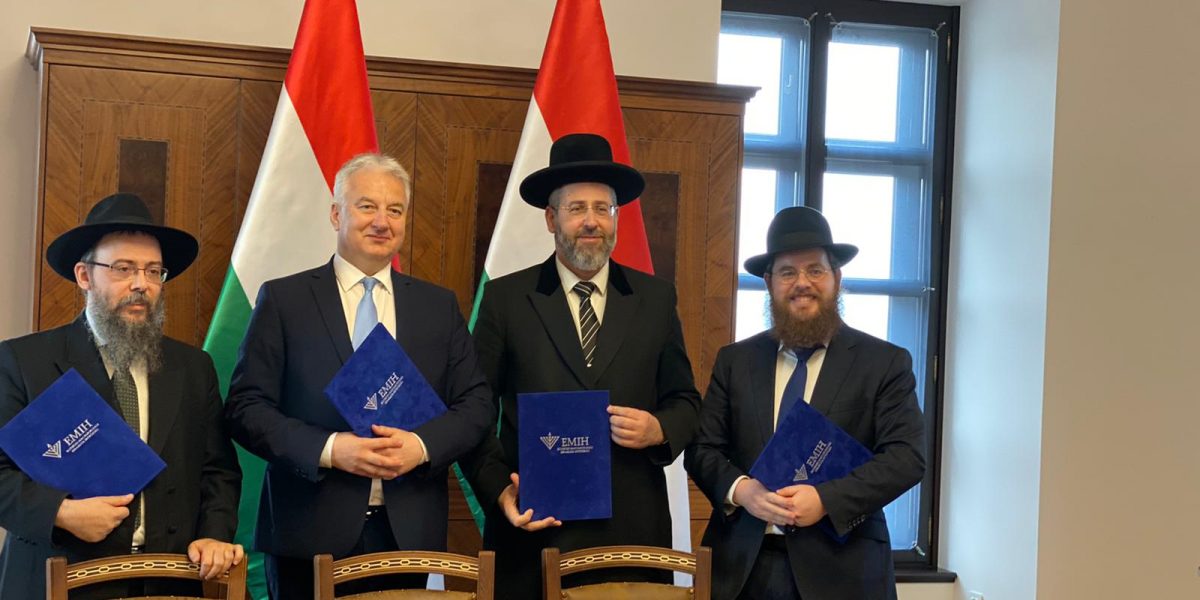
The Hungarian government has signed an agreement with the Orthodox Jewish Community Association (EMIH), stated that they have received special status and official recognition by the state, for the first time since World War II.
This rectified a decades-long injustice during which only the neo-reformist party in Hungary had official institutional recognition benefiting from governmental budgets, while the Orthodox community was not recognized.
The agreement was signed by the Hungarian Deputy Prime Minister Zsolt Semjén and Rabbi Shlomo Kovesh, head of the EMIH who now becomes an official representative of the Hungarian Jewish community.
The agreement was signed in the presence of the Chief Rabbi of Israel Rabbi David Lau, Orthodox Rabbi of Budapest Rabbi Baruch Oberlander, community president Mr. Shandor Sharkadi, and the Director-General of the Rabbinical Centre of Europe Rabbi Arie Goldberg, Community Rabbis and officials. Before the ceremony, The EMIH delegation met with the Prime Minister of Hungary Viktor Orban.
After the signing, Rabbi Kovesh stated that 70 percent of the residents actively participate in the synagogue prayers and are more religious than their parents.
Today, the Jewish community in Hungary is made up of people who twenty or thirty years ago have returned to their Jewish roots.
Chief Rabbi of Israel, Rabbi David Lau said after the signing: “This agreement comes and proclaims: Thanks to the shared past of Hungarian Jewry with the state, the parties today sign an agreement that on the one hand will express the preservation of the past and at the same time contribute to the education of the future generation for unity and gratitude.”
Orthodox Rabbi of Budapest and member of the RCE Rabbi Baruch Oberlander stated “The Lubavecher Rebbe felt a personal responsibility for the Jews in Hungary and therefore sent us thirty years ago as Shluchim to lead the Jewish revival here. Thank G-d, the activities amongst the communities are successful and as of today 17 Rabbis are functioning throughout Hungary conveying special Chabad views.
Today was a piece of history as the Government officially recognized our efforts. This brings about the prayer of the “Chatam Sofer” in his will that the spring is not dry and the tree won’t be chopped down, as the Hungarian Jewry which has always been a religious and devotional Jewish community”.
Menachem Margolin, Chairman of the RCE and the EJA, congratulated the Hungarian government and said that this agreement proves their determination to battle once again not only for the level of anti-Semitism in the country, which is one of the lowest in Europe as evidenced by a European Union report, but also for investing in the development of Jewish life in the country.
Rabbi Arie Goldberg, General-Director of the RCE thanked the Hungarian Prime minister for his warm and sympathetic attitude to the Orthodox community in Hungary and his concern for the safety of community members and educational institutions. He asked him that in his meetings with European heads of state to call on them to strengthen personal security and institutions thus preventing Anti-Semitism.
At the present, eight synagogues are active with the support of the EMIH, and seventeen Rabbis and Chabad shluchim from EMIH, service and assist the local communities and the many tourists in Budapest, Miskolc and Debrecen
Elementary and high schools host hundreds of students in the community. A maintained home for the needy, Hungarian publisher for holy books, kosher slaughter, kosher restaurants and more are active. The number of community institutions is increasing year by year.
Three months ago, two new synagogues on the Danube were inaugurated in memory of the Jews murdered on the river’s edge during the Holocaust. Last year, the historic synagogue in the Buda castle was inaugurated after nearly 400 years.
The synagogue was built in the mid-15th century, along with the city’s foundation, and served the community almost continuously until the early 16th century.
The central synagogue in Obuda opened 9 years ago after it was returned to the community after a 60-year period. The “Obuda” synagogue, recently named “the ruin of the Hungarians,” was built some two hundred years ago in the “Buda” section of the Hungarian capital.
Its magnificent prayer hall covers an area of 400 square meters with 600 seats, it reaches 15 meters. In addition, the building has two more floors, which serve as an event hall and activity rooms for the children of the Jewish community.
